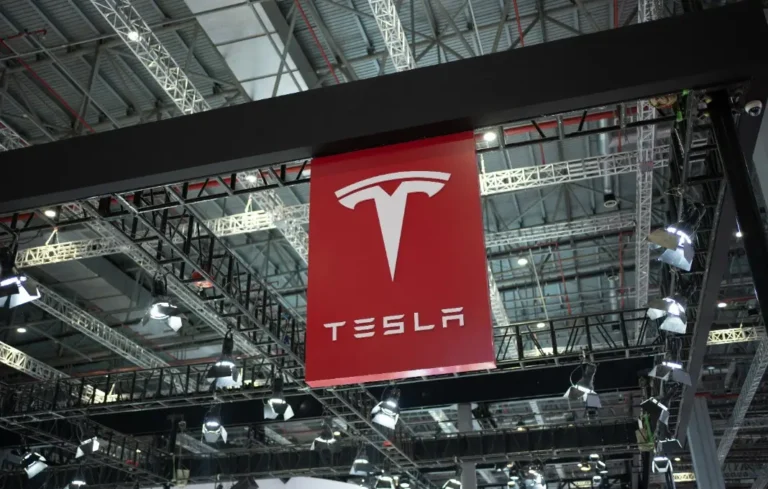A Nov. 6 shareholder vote on Elon Musk's $1 trillion executive compensation plan could have broader implications for corporate boards than initially thought. Similar to what happened with Musk's 2018 $55 billion compensation plan, which a Delaware judge ultimately ruled invalid, board members will need to pay close attention to what happens with this new, unprecedented pay package and how the Tesla board operates to gain approval.
According to a news report from Quartz, Musk's latest pay package guarantees the mercurial CEO about $1 trillion in stock compensation over 10 years if he achieves several ambitious goals, including increasing Tesla's market value from $1.5 trillion to $8.5 trillion, deploying 1 million self-driving robotaxis and deploying 1 million humanoid robots.
Tesla Chairman Robin Denholm is urging shareholders to vote in favor of Musk's pay structure, despite significant opposition to the plan. Denholm argued that Musk needed a huge pay package as an incentive to stay motivated, focused and productive as CEO. She warns that without the lure of a package that gives him financial rewards and shares in the company that give him more influence over decisions, he might quit.
Morningstar reported that during Tesla's recent third-quarter earnings call, Musk said the company needs more management to succeed in its expansion into robotics and self-driving cars. “You need enough vote control to have a strong influence, but not so much that you can't get fired if you go crazy. I think those numbers are in the mid-20s.” [in percentage terms]” he said.
business insider The company estimates that if Musk meets all the criteria in the compensation plan, he could increase his ownership of voting rights in the company from 13% to about 29%. Denholm believes this will help keep Musk at Tesla long-term. However, proxy firms ISS and Glass Lewis have strongly advised Tesla's shareholders to vote against the compensation plan, which is the main reason Tesla is threatening to resign. “It's disgusting that we've built an army of robots here and then we get kicked out because of some stupid recommendation from the ISS or Glass Lewis,” he said at an earnings conference.
According to business insiderseveral influential Tesla shareholders have spoken out about the controversial pay structure. ARK Invest CEO Cathie Wood, billionaire Ron Baron's investment firm Baron Capital, and the Florida Board of Supervisors, which manages more than $280 billion in assets, all voted in favor of giving Musk his proposed $1 trillion compensation. Tesla investors who have publicly opposed the pay system include the $284 billion New York State Retirement Fund, Norway's $2 trillion sovereign wealth fund, and California Public Employees' Retirement System (CalPERS), the largest public pension fund in the United States.
Therefore, Tesla shareholders now have significant voting power on this pay package that could give the company's CEO an unprecedented amount of financial wealth and increased voting power. How would your board deal with such a dilemma? Would you pay an executive more than the CEO has ever received in compensation and transfer voting rights that could disrupt the board's oversight responsibilities while the executive is under threat of resignation? Although we have decided in favor of meeting the compensation and voting rights requirements of the board, there are several issues that other boards should consider if they find themselves in a similar situation.
Will other CEOs demand record pay or threaten to resign? What would you do if your current CEO sent a proposal to the board that would make him the highest-paid CEO of his colleagues, and added that if they didn't accept it, I would quit?Obviously, that's not what happened at Tesla, but the reality is that a CEO can ask for anything at any time, and can quit without notice at any time. Musk has decided to continue pushing the limits of the value of compensation packages in recent years, so don't think that other CEOs haven't studied the kind of compensation packages he's proposed and are considering whether they can offer something similar. What would you do if such a proposal came to your boardroom? It may be time to review your current executive compensation system. Is your board prepared to defend the structure of its current compensation plan? And is your board prepared to leave a retiring executive alone if he proposes to receive compensation that far exceeds what the company has approved in the past?
What percentage of voting power can begin to interfere with board oversight? While the answer is likely to be different for each company's board of directors, every board needs to know how much effective voting control it needs. Of course, the company's share structure has a lot to do with this, but it's simple. When a company gives the CEO too much voting power, it weakens or negates the board's ability to exercise effective oversight over the management team. No board should be allowed to be placed in that position. Does your board have voting rights to provide effective oversight of management?
Are directors who approve compensation plans deemed excessive at greater risk of losing their board seats? Some Tesla shareholders have publicly announced that they believe Elon Musk's compensation plan is excessive and intend to vote against it. Such a vote against the compensation plan could also be a vote against Tesla's three board members, Ira Ehrenpreis, Joe Gebbia and Kathleen Wilson-Thompson, who are up for re-election this year. Board members need to understand that they risk being voted off the board if they approve too many actions that shareholders oppose. Executive compensation is a major concern for shareholders, and excessive executive compensation may have a negative impact on directors' re-election.

